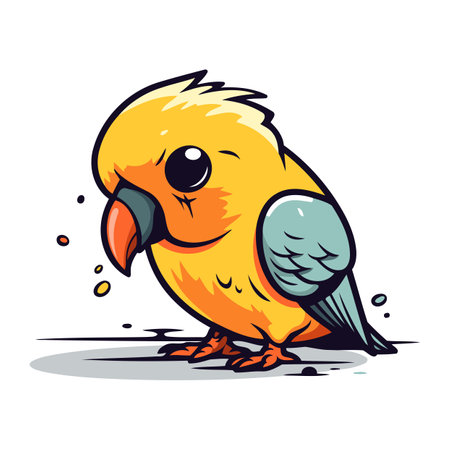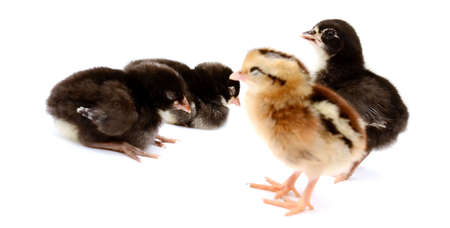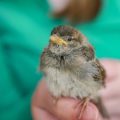Introduction to Pet Bird Health in Britain
When it comes to caring for our feathered companions here in Britain, ensuring their health and happiness is a top priority for every responsible pet owner. The rolling green hills and ever-changing British weather present unique challenges, making it vital to stay informed about the essentials of avian healthcare. One of the most important aspects of keeping pet birds healthy is a proactive approach towards vaccinations and parasite control. In the UK, where native wildlife and migratory birds abound, our beloved budgies, canaries, cockatiels, and parrots may be exposed to various diseases and pesky parasites. By understanding the importance of these preventive measures within a distinctly British context, we can safeguard not only our pets but also help prevent the spread of illnesses within local bird communities. This article will guide you through the key vaccinations and effective parasite control strategies tailored for Britain’s climate and common avian threats, ensuring your bird’s adventure through life is as safe and joyful as possible.
Common Diseases and Parasites Affecting UK Pet Birds
Pet birds across Britain are susceptible to a variety of diseases and pesky parasites that can affect their health, happiness, and longevity. As you journey through life with your feathered companion, it’s essential to be aware of the main threats lurking in the British environment. Here’s a closer look at some of the most common culprits you might encounter.
Major Diseases in British Pet Birds
| Disease | Description | Symptoms |
|---|---|---|
| Avian Influenza (Bird Flu) | A viral infection affecting many bird species, sometimes spreading to humans. | Lethargy, respiratory distress, swollen head, sudden death |
| Psittacosis (Parrot Fever) | A bacterial disease caused by Chlamydia psittaci, transmissible to humans. | Nasal discharge, ruffled feathers, loss of appetite, diarrhoea |
Pesky Parasites: What to Watch For
Parasites are another common concern for UK pet birds. They can quickly turn your bird’s daily adventure into an uncomfortable ordeal if left unchecked. Here are some frequent offenders:
| Parasite | Type | Effects on Birds |
|---|---|---|
| Mites (Red mites, Air sac mites) | External/Internal | Irritation, feather loss, anaemia, respiratory issues |
| Worms (Roundworms, Tapeworms) | Internal | Weight loss, diarrhoea, reduced vitality |
The Importance of Early Detection and Prevention
Recognising these diseases and parasites early is crucial in keeping your avian friend healthy. Regular check-ups with an avian vet and a keen eye for changes in behaviour or appearance will help you spot trouble before it escalates. With the right knowledge and attention, you’ll ensure your pet bird enjoys its British adventure free from unwelcome guests.

3. Essential Vaccinations for Pet Birds
When it comes to keeping our feathered companions healthy in Britain, understanding which vaccinations are essential is a crucial part of responsible pet ownership. While the UK does not have an extensive list of mandatory vaccines for pet birds compared to cats and dogs, certain core vaccinations are highly recommended—especially if your bird will be socialising, attending shows, or living in multi-bird households. Below, you’ll find a handy table summarising key vaccines, their availability in Britain, and any pertinent legal notes:
| Vaccine | Recommended For | Availability in UK | Legal/Regulatory Notes |
|---|---|---|---|
| Avian Polyomavirus | Budgerigars, parrots, and other psittacines | Available via avian vets; often imported | Not legally required but strongly advised for breeders and show birds |
| Pacheco’s Disease (Herpesvirus) | Parrots and related species | Limited; consult specialist avian vets | No legal mandate; vaccination on a case-by-case basis |
| Paramyxovirus (PMV) | Pigeons and doves | Widely available; especially for racing pigeons | Mandatory for racing pigeons entering competitions/shows |
| Avian Influenza (AI) | Poultry, waterfowl (rarely pet birds) | Restricted to outbreak control by authorities | Only administered during government-led outbreak response; not routine for pets |
While some vaccines are easy to access through avian veterinarians, others may require specialist import or are only offered under specific circumstances. It’s important to remember that regulations can change swiftly in response to outbreaks or new research—so always check with your local vet for up-to-date advice. For most pet bird keepers in Britain, maintaining good hygiene and regular health checks often form the backbone of disease prevention, but targeted vaccination remains a wise choice for those with high-risk birds or those participating in shows and breeding programmes.
4. Routine Parasite Control: Methods and Products
When it comes to keeping your feathered companion in tip-top shape across the UK, routine parasite control is an absolute must. Britain’s climate means that both internal and external parasites can be a persistent threat to pet birds, especially if you enjoy taking your little adventurer out for some fresh air or even just letting them perch near an open window. The right prevention and treatment regime can make all the difference to your bird’s health and happiness.
Common Parasites Affecting Pet Birds
Birds in Britain may encounter a variety of pesky parasites. Internal parasites include worms such as roundworms and tapeworms, while external threats are typically mites (like red mite), lice, and fleas. Even if your bird lives exclusively indoors, these unwelcome guests can hitch a ride on clothing, food, or other pets.
Methods of Parasite Control
Parasite control can be split into two main approaches: prevention and treatment. Prevention involves regular cleaning routines, careful monitoring, and using products designed to deter infestations. Treatment is necessary if your bird becomes infested—prompt action ensures your pet is back to exploring in no time.
| Type of Parasite | Prevention Methods | Treatment Options |
|---|---|---|
| Internal Worms | Routine faecal checks with your avian vet; avoid wild-caught insects as treats | Avian wormers (e.g., Flubenvet, Avimec), administered under veterinary guidance |
| Mites & Lice | Regular cage cleaning; replace perches and toys; inspect feathers frequently | Mite sprays or spot-on treatments (e.g., Ivermectin-based products) |
Locally Available Products
The UK has a range of trusted products available at pet shops or through avian vets. Here’s a handy snapshot of what British bird keepers often rely on:
| Product Name | Main Use | How It’s Applied |
|---|---|---|
| Johnsons Bird Mite & Lice Spray | Treats external mites/lice on birds and cages | Spray lightly onto feathers and cage surfaces |
| Harkers 4 in 1 Soluble Tablets | Treats internal parasites and some bacterial infections | Add to drinking water as per instructions |
| Ivermectin Spot-On Drops (from vet) | Treats mites, lice, some internal worms | Drops applied directly onto skin at nape of neck |
A Few Tips from Local Keepers:
- If you’re venturing out with your bird (say, for a bit of garden time), always check their feathers upon returning indoors.
- Keen observation is key—if you notice itching, feather loss, or changes in droppings, consult a local avian vet straight away.
The Takeaway for UK Bird Lovers:
With Britain’s damp weather, parasite problems can crop up when you least expect them. By combining diligent hygiene practices with trusted products found at your neighbourhood pet shop or veterinary clinic, you’ll help ensure every outing—and every day—remains safe for your plucky little explorer.
5. British Veterinary Support and Best Practices
When it comes to keeping your pet birds healthy and chirpy in Britain, having access to the right veterinary support is absolutely essential. Let’s explore how to find avian vets in the UK, why regular check-ups matter, and where to stay informed with the most reliable British resources.
Guidance for Sourcing Avian Vets in the UK
Not every veterinary clinic specialises in avian care, so it’s important to seek out professionals who are experienced with birds. Here are some tips:
- Use Official Directories: The Royal College of Veterinary Surgeons (RCVS) provides an online tool to find registered practices with avian expertise.
- Seek Recommendations: Ask local bird clubs, breeders, or fellow pet owners for trusted vet suggestions.
- Check Affiliations: Look for clinics associated with the British Veterinary Zoological Society (BVZS).
Quick Guide: Finding an Avian Vet
| Resource | Description | Website |
|---|---|---|
| RCVS Find a Vet | Locate registered veterinary practices by speciality | findavet.rcvs.org.uk |
| BVZS Members Directory | Find vets with zoological/avian expertise | bvzs.org.uk |
| Local Bird Clubs | Community recommendations and support | N/A – Search locally |
Tips for Regular Check-Ups
Regular visits to your avian vet can help catch health issues early and keep your feathered friend in top condition. Most experts recommend at least one annual check-up, but younger or elderly birds might benefit from more frequent visits. Don’t forget to keep a record of vaccinations and parasite treatments – these are invaluable for tracking your bird’s health history.
Checklist: What to Discuss During a Vet Visit
- Vaccination status and any upcoming boosters needed
- Parasite control routines and recent observations
- Nutritional advice specific to your bird’s species
- Behavioural changes or concerns you’ve noticed at home
- Recommendations on environmental enrichment and socialisation
Staying Informed with British Resources
The world of avian health is always evolving, so it pays to stay up-to-date. Trusted British organisations regularly publish guidance and news relevant to pet bird owners. Subscribe to newsletters, follow reputable websites, and consider joining local groups for additional support.
Recommended Resources for UK Bird Owners:
- RSPB (Royal Society for the Protection of Birds): General care advice and advocacy for wild and captive birds.
- PFAUK (Parrot Society UK): Specialist information for parrot keepers.
- Your chosen avian vet’s website or newsletter: Many offer tailored updates for clients.
The journey of caring for pet birds in Britain is full of adventure—make sure you’re well-equipped with expert support, regular check-ups, and reliable local knowledge. Your feathered companion deserves nothing less!
6. Safe Travels and Outdoor Adventures
Exploring the great British outdoors with your feathered friend can be a truly rewarding experience, but it comes with its own set of responsibilities. Whether you’re planning a staycation in the Lake District, a ramble through Scottish woodlands, or simply taking your pet bird to the local park, ensuring their safety and wellbeing is paramount. Here’s how you can protect your pet bird during travel or outdoor adventures across the British Isles:
Essential Documentation for Travel
If you are travelling within the UK, most domestic journeys don’t require complex paperwork. However, if youre attending bird shows or events, or transporting birds between different parts of Britain (including Northern Ireland), its wise to carry certain documents:
| Document | Purpose | Where Needed |
|---|---|---|
| Pet Passport/Health Certificate | Proof of good health and vaccinations | Events, shows, travel between GB & NI |
| Proof of Ownership | Helps in identification if lost or stolen | Recommended everywhere |
| Vaccination Records | Shows up-to-date parasite control/vaccinations | Vet checks, boarding, events |
| DEFRA Notifications (if required) | Compliance with animal transport rules | Larger groups or commercial movement |
Packing Essentials for Your Bird’s Adventure
- Secure Carrier: Choose a well-ventilated and escape-proof carrier for safe transport.
- Travel Cage Accessories: Bring familiar perches and toys to reduce stress.
- Water & Food Supplies: Pack fresh water and enough food for the duration of your outing.
- Sunscreen & Shade: British weather is unpredictable; provide shade from strong sun as well as shelter from sudden rain.
- Cleansing Wipes: For quick clean-ups during your trip.
- Towel or Blanket: To cover the carrier if your bird becomes anxious in unfamiliar surroundings.
Outdoor Safety Tips for Pet Birds in Britain
- Avoid Wild Bird Flocks: British parks and gardens are teeming with wild birds that may carry diseases or parasites. Keep your pet at a safe distance.
- Check Local Regulations: Some public spaces have restrictions on animals—always check before setting out.
- Mite & Tick Prevention: Use vet-recommended treatments, especially in grassy or wooded areas where parasites thrive.
- ID Tags/Microchips: Ensure your bird has an ID tag on its carrier or is microchipped for easier recovery if lost.
- No Off-lead Flying: Unless in a secure aviary or flight area, always keep your bird contained to prevent escape or predation by local wildlife (such as foxes or raptors).
- Coping with Weather Changes: A classic British day can bring sun and showers—be prepared for both!
Your Adventure Awaits!
The British Isles offer countless opportunities for safe outdoor fun with your pet bird—just remember to plan ahead, pack wisely, and always put your companion’s health first. With these precautions in place, you’ll both be ready to make memories all across Britain’s beautiful landscapes!

